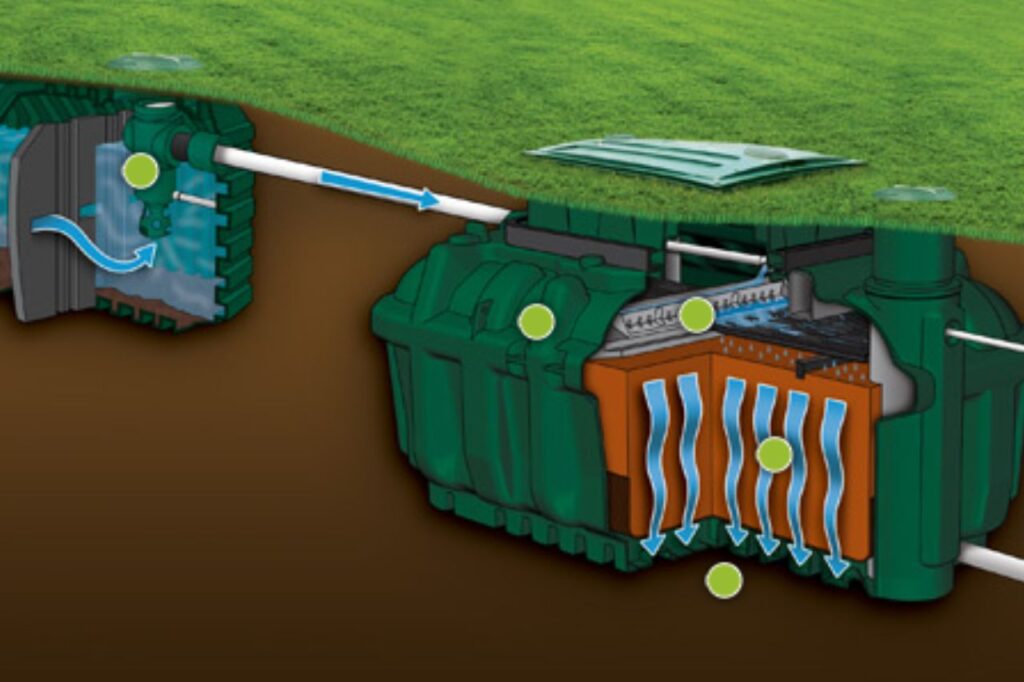Biofilter septic systems are an eco-friendly alternative to traditional septic systems. They use natural processes to treat wastewater and remove harmful contaminants before releasing the water back into the environment. In this guide, we’ll explore how biofilter septic systems work and why they’re a great option for those looking to reduce their environmental impact.
What is a biofilter septic system?
A biofilter septic system is a type of wastewater treatment system that uses natural processes to remove harmful contaminants from wastewater. The system consists of a series of tanks and filters that work together to break down and treat the wastewater. The biofilter, which is the heart of the system, is a layer of organic material that provides a habitat for beneficial bacteria and other microorganisms. These microorganisms break down the contaminants in the wastewater, converting them into harmless byproducts that can be safely released back into the environment. Biofilter septic systems are a great eco-friendly option for those looking to reduce their environmental impact and promote sustainable living.
How does a biofilter septic system work?
A biofilter septic system works by using natural processes to treat wastewater. The system consists of a series of tanks and filters that work together to break down and treat the wastewater. The biofilter, which is the heart of the system, is a layer of organic material that provides a habitat for beneficial bacteria and other microorganisms. These microorganisms break down the contaminants in the wastewater, converting them into harmless byproducts that can be safely released back into the environment. The treated wastewater can then be used for irrigation or other non-potable purposes. Biofilter septic systems are a great eco-friendly option for those looking to reduce their environmental impact and promote sustainable living.
Benefits of using a biofilter septic system
There are many benefits to using a biofilter septic system. First and foremost, they are an eco-friendly option for wastewater treatment. Unlike traditional septic systems, which can release harmful contaminants into the environment, biofilter systems use natural processes to treat wastewater and produce harmless byproducts. Additionally, biofilter systems require less maintenance than traditional systems, as the natural processes that occur within the system help to keep it functioning properly. Finally, biofilter systems can be used for a variety of non-potable purposes, such as irrigation, which can help to conserve water and reduce overall water usage.
Maintenance and upkeep of a biofilter septic system
While biofilter septic systems require less maintenance than traditional systems, they still require some upkeep to ensure they are functioning properly. Regular inspections and cleanings are necessary to prevent clogs and ensure that the system is treating wastewater effectively. Additionally, it’s important to avoid putting certain materials down the drain, such as harsh chemicals or non-biodegradable items, as these can disrupt the natural processes within the system. Overall, proper maintenance and upkeep of a biofilter septic system can help to ensure its longevity and effectiveness in treating wastewater.
Comparison to traditional septic systems
Biofilter septic systems are an eco-friendlier option compared to traditional septic systems. Traditional systems rely on anaerobic bacteria to break down waste, which can produce harmful byproducts like methane gas. Biofilter systems, on the other hand, use aerobic bacteria to break down waste, which produces less harmful byproducts and can even produce usable water for irrigation. Additionally, biofilter systems require less space and can be installed in areas where traditional systems may not be feasible. However, biofilter systems may have higher upfront costs and require more specialized maintenance.
What are the Drawbacks of a Biofilter Septic System?
While a biofilter septic system can be a great choice for those looking for a sustainable and eco-friendly option, there are some drawbacks to consider. One potential issue is that these systems require regular maintenance and monitoring to ensure they are functioning properly. Additionally, they may not be suitable for all soil types or property layouts, so it’s important to consult with a professional before installing one. Finally, the upfront cost of a biofilter septic system may be higher than traditional septic systems, although the long-term savings on water and maintenance costs may offset this initial investment.
Conclusion
In conclusion, biofilter septic systems are an excellent eco-friendly alternative to traditional septic systems. They use natural processes to treat wastewater and remove harmful contaminants before releasing the water back into the environment. Biofilter septic systems are a great option for those looking to reduce their environmental impact and promote sustainable living. They require less maintenance than traditional systems, can be used for a variety of non-potable purposes, and produce less harmful byproducts. However, it’s important to note that they require regular maintenance and monitoring, may not be suitable for all soil types or property layouts, and may have higher upfront costs. Overall, biofilter septic systems are a great choice for those looking for a sustainable and eco-friendly option for wastewater treatment.

